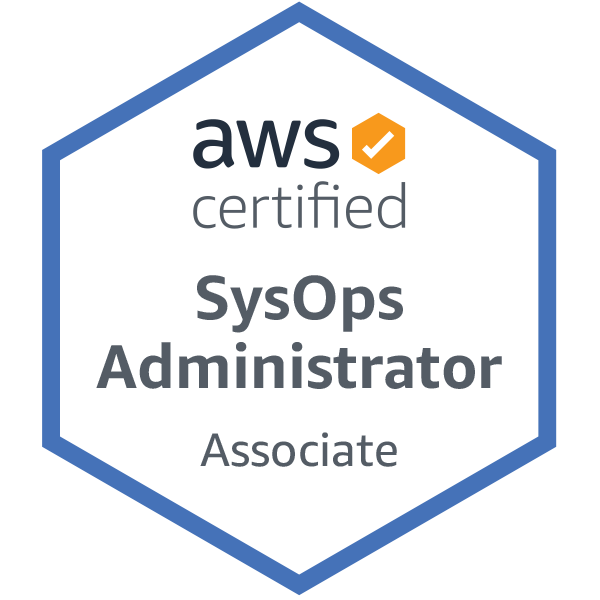Cloud Operations on AWS - March 19
Ended Mar 21, 2024
Sorry! The enrollment period is currently closed. Please check back soon.
Full course description
Schedule
Live Online Training
Date: March 19, 20, & 21, 2024
Time: 10:00am - 6:00pm PST
- Enrollment window closes 48 hours prior to class start.
- Course will be published and able to be viewed one business day in advance to start date.
What you'll learn
This course (formerly known as Systems Operations on AWS) teaches systems operators and anyone performing cloud operations functions how to manage and operate automatable and repeatable deployments of networks and systems on AWS. You will learn about cloud operations functions, such as installing, configuring, automating, monitoring, securing, maintaining, and troubleshooting these services, networks, and systems. The course also covers specific AWS features, tools, and best practices related to these functions.
In this course, you will learn to:
- Identify the AWS services that support the different phases of Operational Excellence, an AWS Well-Architected Framework pillar
- Manage access to AWS resources using AWS accounts and organizations and AWS Identity and Access Management (IAM)
- Maintain an inventory of in-use AWS resources by using AWS services, such as AWS Systems Manager, AWS CloudTrail, and AWS Config
- Develop a resource deployment strategy using metadata tags, Amazon Machine Images (AMIs), and AWS Control Tower to deploy and maintain an AWS cloud environment
- Automate resource deployment by using AWS services, such as AWS CloudFormation and AWS Service Catalog
- Use AWS services to manage AWS resources through CloudOps lifecycle processes, such as deployments and patches
- Configure a highly available cloud environment that uses AWS services, such as Amazon Route 53 and Elastic Load Balancing, to route traffic for optimal latency and performance
- Configure AWS Auto Scaling and Amazon EC2 Auto Scaling to scale out your cloud environment based on demand
- Use Amazon CloudWatch and associated features, such as alarms, dashboards, and widgets, to monitor your cloud environment
- Manage permissions and track activity in your cloud environment by using AWS services, such as AWS CloudTrail and AWS Config
- Deploy your resources to an Amazon Virtual Private Cloud (Amazon VPC), establish necessary connectivity to your Amazon VPC, and protect your resources from disruptions of service
- State the purpose, benefits, and appropriate use cases for mountable storage in your AWS Cloud environment
- Explain the operational characteristics of object storage in the AWS Cloud, including Amazon
- Simple Storage Service (Amazon S3) and Amazon S3 Glacier
- Build a comprehensive cost model to help gather, optimize, and predict your cloud costs by using services such as AWS Cost Explorer and the AWS Cost & Usage Report
Cloud Operations on AWS Course Outline
Ready to take your cloud knowledge to the next level? Enroll now.
Who should take this course?
This course is intended for:
- System administrators and operators who are operating in the AWS Cloud
- Informational technology workers who want to increase their cloud operations knowledge
Recommended Prerequisites
We recommend that attendees of this course have:
- Successfully completed the AWS Technical Essentials course
- A background in software development or systems administration
- Proficiency in maintaining operating systems at the command line, such as shell scripting in Linux environments or cmd/PowerShell in Windows
- Basic knowledge of networking protocols (TCP/IP, HTTP)

Relevant Certification Path
To earn this relevant certification, you will need to take and pass the AWS Certified SysOps Administrator - Associate exam. The prices for courses do not include exam costs for certifications.
Information and Policy
Frequently Asked Questions:
Refund Policy:
- Refund requests submitted 72 hours or more prior to class start will result in a full refund.
- Refunds will not be remitted less than 72 hours in advance of class or for non-attendance.

